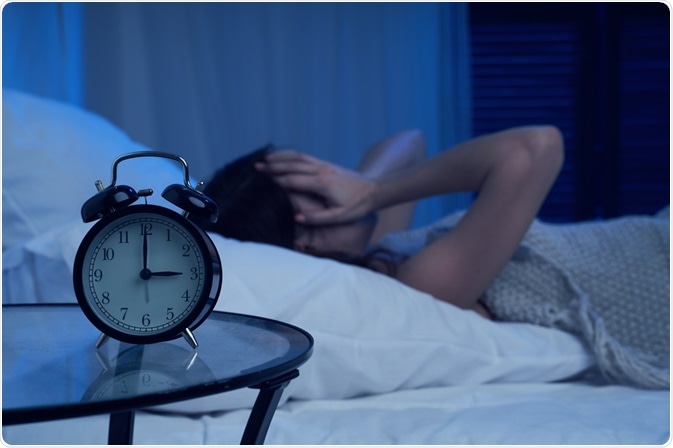Dyssomnia is a broad range of sleep disorders involving difficulty falling or remaining asleep, which can lead to excessive sleepiness during the day due to the reduced quantity, quality or timing of sleep. This is distinct from parasomnias, which involves abnormal behavior of the nervous system during sleep.
Symptoms indicative of a dyssomnia sleep disorder may include difficulty falling asleep, intermittent awakenings during the night or waking up earlier than usual. As a result of the reduced or disrupted sleep, most patients do not feel well-rested and have less ability to perform during the day. In many cases, lifestyle habits have an impact on the disorder, including stress, physical pain or discomfort, napping during the day, bedtime or use of stimulants.
 Image Credit: Sergey Mironov / Shutterstock.com
Image Credit: Sergey Mironov / Shutterstock.com
Dyssomnia sleep disorders
There are two main types of dyssomnia sleep disorders according to the origin or cause or the disorder: extrinsic and intrinsic. Both of these are covered in more detail below, in addition to general principles in the diagnosis and treatment of the disorders.
Extrinsic dyssomnias are sleep disorders that originate from external causes and may include:
- Insomnia
- Sleep apnea
- Narcolepsy
- Restless legs syndrome
- Periodic Limb movement disorder
- Hypersomnia
- Toxin-induced sleep disorder
- Kleine-Levin syndrome
Intrinsic dyssomnias are sleep disorders that originate from internal causes and may include:
- Altitude insomnia
- Substance use insomnia
- Sleep-onset association disorder
- Nocturnal paroxysmal dystonia
- Limit-setting sleep disorder
Diagnosis of dyssomnia
The differential diagnosis between the types of dyssomnias usually begins with a consultation about the sleep history of the individual, including the onset, frequency and duration of sleep. Certain lifestyle habits, such as the consumption or alcohol or caffeine, or the use of illicit and prescription drugs may also have an impact. Any particular complaints regarding their sleep patterns should also be discussed.
Following this, examinations to determine physical susceptibilities and the mental status of the individual should take place. Some mental illnesses, such as insomnia or hypersomnia, have the potential to cause some types of dyssomnia. Likewise, disorders of the nervous, cardiovascular, respiratory, rheumatoid or endocrine system can also lead to a sleep disorder.
Laboratory tests may also be required to investigate the involvement of specific health conditions, such as hyperthyroidism or phaeochromocytoma, in causing the symptoms of sleep difficulty.
Sleep Disorders
Treatment of dyssomnia
There are two main treatment techniques to manage dyssomnia: psychological and pharmacological. These may be used alone, but are often used in combination to control symptoms of the disorder.
Psychological treatment techniques are the preferred first-line choice of treatment for primary sleep disorders, including discussion about sleep hygiene and implementing techniques to improve sleep. Cognitive behavioral therapy (CBT) is a common technique used to improve sleep in dyssomnia.
Pharmacological methods are most appropriate in acute circumstances, such as the presentation of sleep disorders in a time of grief. This may include the use of medication such as melatonin to alter the sleep cycle or other drugs to aid sleep at nighttime or increase alertness during the day. Bright light or dark therapy may also offer a benefit to adjust the body clock for individuals with circadian rhythm sleep disorders.
References
Further Reading
Last Updated: Dec 16, 2022